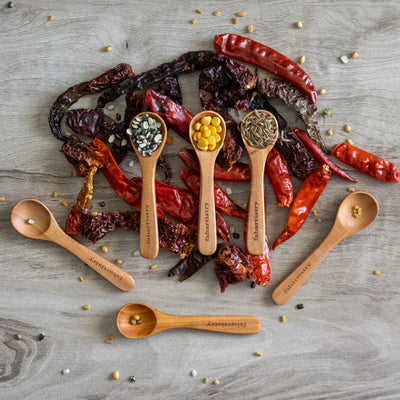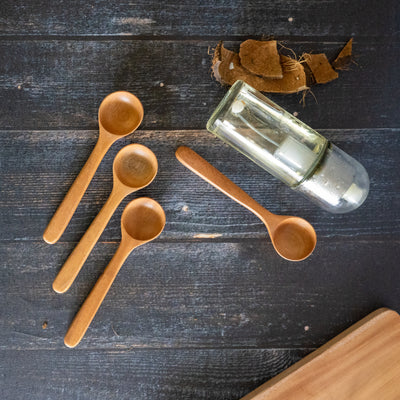LEAVES OF NATURE - A U G U S T 2 0 2 1 | I S S U E N O . 1
The Official Voice of Fabartisty
THE MIRACLE POLYMER
The perfect layman's material
Plastic and its manifold derivatives have become a household name in the previous few decades, becoming synonymous with easy-to-attain, easy-to-maintain products within and beyond the kitchen. However, issues ranging from harmful health concerns to environmental repercussions of plastic usage came to light.
Because of this, a growing percentage of the world have begun to shift their attention to more ‘plastic-savvy’ materials and lifestyle approaches in the kitchen, from familiarizing themselves with recyclable or reusable plastics to viable biodegradable alternatives.
Amongst the various replacements finding a spotlight in the face of this change are glass items, metal cooking utensils, compostable/biodegradable substances like fiber and more specifically, wood like that from the neem tree.


THE MIRACLE TREE
"What nature destroys, it can just as easily nurture."
The neem tree has been part of medicinal history dating back almost 5000 years and its potency has only been enhanced since.
Over the years, these trees were discovered to house almost 130 naturally healthy compounds within its bark, stem and roots. Today, every part of the neem tree has been shown to have uses in the cosmetic industry for its antifungal properties as well as the healthcare industry as an important contributor to Ayurvedic treatment.
These properties contribute to Neem wood being an obviously healthier alternative to plastic cookware. The production process is also much less damaging to the environment- which means wooden cookware production does not result in dangerous chemical byproduct pollution or traces of toxins on the surface.
Owing to its large handmade production ( for instance, traditional artisans from West Bengal) and the durability of the wood itself, these pieces of cookware are also highly scratch-resistant, helping it stick around in the kitchen counter much longer than a plastic utensil. Another major concern about plastic cookware is the fear of harmful chemicals leaching into food from the plastic- with wooden cookware, that would not be a concern at all.
Plastic cookware and utensils are slowly becoming a thing of the past- kitchen counters and shelves today are showing a conscious shift away from the miracle polymer to the miracle tree, an ecofriendly and marginally more sustainable decision for the society of today and tomorrow.







